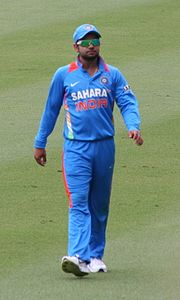A few days back, the food delivery company Zomato delivered its first financial results after getting listed on the stock exchanges.
As has been extensively reported in the media by now, the company continues to lose money. The revenue from operations of the company for the period April to June 2021 amounted to Rs 844 crore. The total expenditure was at Rs 1260 crore. To put it in another way, for every Rs 100 that Zomato earned, it spent Rs 149.
If we look at the same metric for the period January to March 2021, the company had spent Rs 128 for every Rs 100 that it earned. For the period April 2020 to March 2021, the company had spent Rs 131 for every Rs 100 that it earned. Clearly, the expenditure that the company has incurred for every rupee that it earned during April to June 2021, was higher than it was in the past.
A possible reason for this could be higher discounts offered to consumers to drive up sales before the company’s initial public offering hit the stock market. As I have said on multiple occasions in the past, Zomato, if it works, is a long-term bet.
The baseline success rate of startups is low to begin with. Many ecommerce ventures have failed in the past. The joker in the pack is whether people will continue ordering once discounts are off the table and once the company decides that it’s time to stop bleeding in order to drive sales.
Also, whenever this happens, will the sales be substantial enough. This means will enough people order food using the app for the business to be a viable proposition.
In that sense, the success of Zomato also depends on the success of India’s economic story, which has been stagnating in the recent past. The more jobs we are able to create, the more people will earn, and the more they are likely to order food than cook at home.
The current business model of the company isn’t viable, and that is obvious. Whether it will become viable in the days to come is a question that remains. So, we will leave it at that.
Nonetheless, there is another important point that needs to be made. In a letter to the shareholders, Zomato CEO Deepender Goyal said:
“We will do earnings/analyst calls once a year, at the end of each fiscal, where we will share a more detailed commentary on the year gone by along with key metrics.”
This when Rs 756 crore or 60% of the total expenses of Rs 1260 crore during April to June 2021, have been categorised as other expenses without an explanation for where this huge amount went. Are these discounts that the company is offering to the prospective customers? Or the money it is paying its delivery partners? Or both? This needs to be detailed. Of course, Zomato is not breaking any law here.
Further, this lack of transparency doesn’t seem to have bothered the newly minted shareholders or the so-called owners of the company, in any way. Nonetheless, this does show us something that the economist John Kenneth Galbraith talked about in his last book The Economics of Innocent Fraud.
As he wrote:
“The myths of investor authority, of the serving stockholder, the ritual meetings of directors and the annual stockholder meeting persist, but no mentally viable observer of the modern corporation can escape the reality. Corporate power lies with management.”
Or as he puts it in an even more direct way:
“No one should be in doubt: Shareholders—owners—and their alleged directors in any sizeable enterprise are fully subordinate to the management. Though the impression of owner authority is offered, it does not, in fact, exist.”
The management with their employee stock option plans are also part owners of companies these days.
By deciding to give out details of its business only once a year, Zomato, like many other companies before it, has once again proved what Galbraith had talked about in his 2003 book. That when it comes to the modern corporate structure, investor authority doesn’t really exist. And it’s basically a myth.
Of course, the investors themselves aren’t bothered about such details right now. They are busy with “greed, optimism, exuberance, confidence, credulity, daring, risk tolerance and aggressiveness,” as Howard Marks writes in Mastering the Market Cycle. The speculative orgy is currently on and there is no point in looking at data, examining it and asking questions.
But then all good things come to an end. Couples breakup. Marriages fail. SRK grows old. Lata’s voice doesn’t sound the same anymore. Kohli ends up out of form for an extended period in test cricket. And stock markets fall. Of course, one doesn’t know exactly when. But most times, this is how things go.

